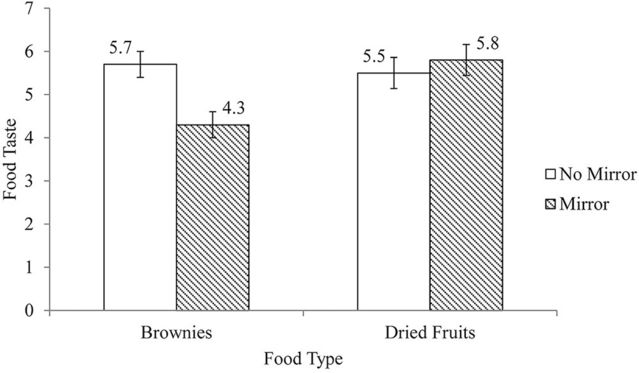Unconscious
The Power of Watching Yourself Eat
A Surprising Way to Stop Eating so Many Brownies
Posted September 11, 2017
I know why I sometimes eat too many brownies. They taste great! The same goes, of course, for a whole slew of desserts—I love strawberry rhubarb pie, and I never say no to a ginger snap. And while a touch of dessert is often a fine way to top off dinner, many of us get in trouble when we gorge on desserts.
So how can we get a taste of dessert without overindulging? This might sound weird, but try eating in front of a mirror—it will make that junk food taste less delicious.
Bear with me while I explain the science behind this weird mirror research. I will also demonstrate how the findings are still relevant, whether or not you plan to actually eat in front of a mirror.
Normally, we think of how food tastes as being an objective phenomenon. Our taste buds tell us whether food is salty or sweet, tart or bland. But behavioral science has shown that our taste perceptions are influenced by a slew of unconscious factors. Give kids apples from a brown paper bag—meh. From a McDonald’s brown paper bag—yummy! Put green (tasteless) food coloring in a glass of orange juice—yuck! Tell someone a cracker is healthy—yawn. Describe the same cracker as unhealthy–delish!
What does all this have to do with mirrors? It has to do with self-awareness. When people are made more aware of their behaviors, they often start comparing their behaviors to the ideals they set for themselves. And nothing promotes self-awareness better than a mirror. The theory, then, proposed by Ata Jami from University of Central Florida, is that when people eat unhealthy foods in front of a mirror, they feel bad about not living up to their ideals and are more likely to alter their consumption to match their ideals as a result. By contrast, when people sit in front of a mirror while eating healthy food, they don't experience any feelings of failing to live up to their ideals and their consumption will hold constant.
Indeed, here’s a picture of Jami’s findings, showing that eating in front of a mirror changed taste perceptions of unhealthy food, but had no effect on healthy food:

I don’t expect any of you to actually install mirrors in your dining rooms. But there’s still a useful lesson here. Taste is not fixed. Deliciousness is more subjective than we think. And making ourselves self-conscious about our food choices can help us reduce temptations by making temptations less tempting.
*Previously Published in Forbes*


